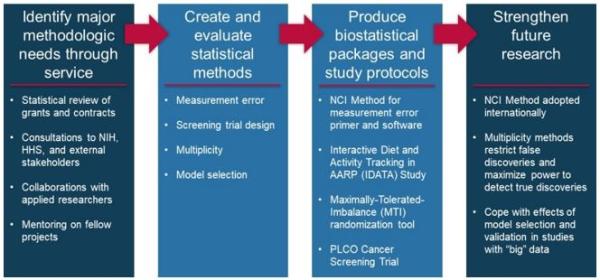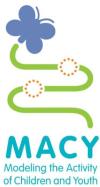The Biometry Research Group supports cancer prevention research through a variety of activities, including statistical reviews, consultations, and development of statistical models and methodologies. The group identifies problems in real-world scientific applications and creates requirements for statistical innovation that underpin the development or improvement of a methodologic package.

The Biometry Research Group is involved in
- research related to the theory and analysis of screening trials and observational studies;
- advancement of appropriate methodologies for solving problems of multiplicity and model selection when analyzing high-dimensional data;
- statistical analysis of measurement error, especially in nutrition and physical activity studies.
The Biometry Research Group is also extending into data science, which is the creation of systems to capture, maintain, process, analyze, and communicate complex data. Technological and engineering advances have made large collections of data available, yet there is a need for novel techniques to extract meaning from large datasets. The Biometry Research Group is particularly interested in the development of methods for processing data obtained from wearable physical activity sensors and extracting behavioral patterns for prevention research, and an area of need is advanced longitudinal methods for the study of pediatric physical activity.

Modeling the Activity of Children and Youth (MACY)
The Biometry Research Group is developing a program called Modeling the Activity of Children and Youth (MACY) to support investigators who study physical activity from infancy to early adulthood. Physical, emotional, and social development are entwined with evolutions in active play and movement during childhood and adolescence.
Measurement Error: Impact on Nutrition Research and Adjustment for Its Effects
As an effort to support research on statistical analysis of measurement error, the group developed this tool for individuals who wish to know more about the statistical issues underlying measurement error, its impact on research results, and statistical methods of adjusting for its unwanted effects, especially as applied to nutrition research.
Interactive Diet and Activity Tracking in AARP (IDATA) Study Data
This is a methodologic study of device-based, internet-based, and conventional self-report instruments for assessing physical activity and diet in epidemiologic research. Learn more about the IDATA Study and how to request access to the data.